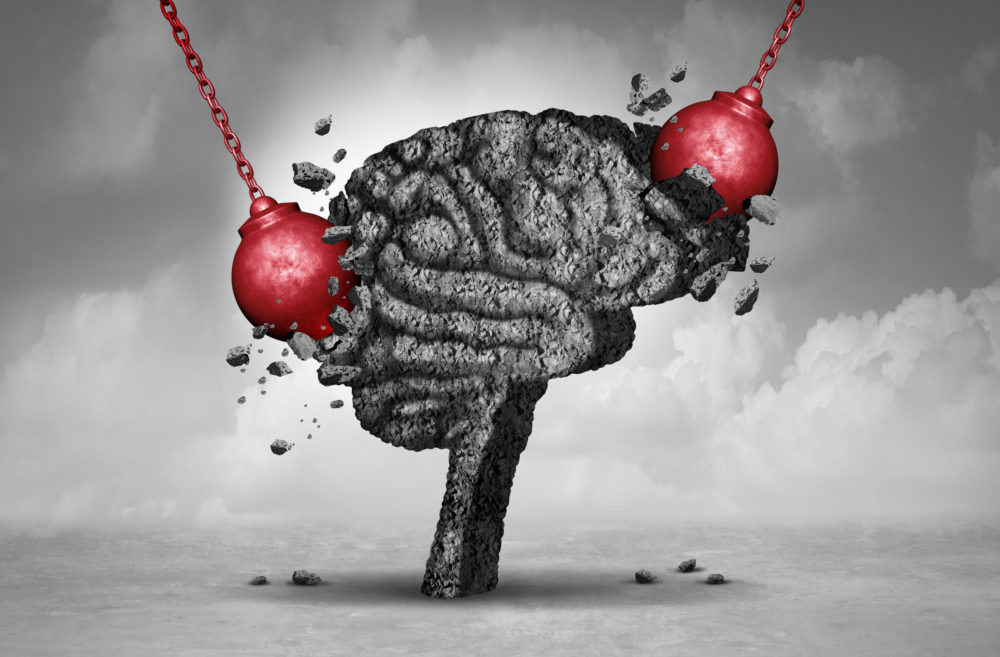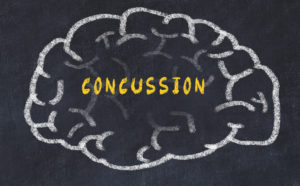
Article by: Megan Taylor, PT, DPT, Cert. DN / Jasmine Brown, PT, DPT, Cert. DN
A Concussion is a mild traumatic brain injury caused by a blow to the head with or without loss of consciousness. Most commonly, concussions are sustained from sporting events, although other mechanisms of injury include car accidents and falls. Concussion prevalence varies per sport, but once one concussion is sustained, that individual has an increased chance of sustaining another. Common signs of a concussion include:

Most commonly, concussions are sustained from sporting events, although other mechanisms of injury include car accidents and falls.
nausea, vomiting, headaches, and dizziness. Although uncommon other symptoms can include increased anxiety, depression, and neck stiffness/pain. It may be hard to decipher these symptoms amongst youth and young teens. If not addressed, it can impact their daily activities and ability to participate in social settings such as school and sporting events. With research in the medical field continually evolving, safety measures and treatment approaches are in place to help individuals recover and return to full prior level of function once a concussion is sustained.
If you suspect that you or someone you know has sustained a concussion, it is highly encouraged to seek medical care immediately. Upon diagnosis of the concussion, it is ideal to rest, limit phone use/screen time, and have a bland but healthy diet. These activity limitations should not exceed 1-3 days. Resting for 4+ days can lead to longer resolution of symptoms and more post-concussive symptoms.
Physical Therapists play a vital role in concussion recovery, especially when early intervention occurs. A physical therapist can perform several in-depth tests, including visual and balance testing.
How Physical Therapy Treats Concussions:
- Visual Testing: includes assessing for double vision, difficulty focusing, and visual tracking.
- Balance Testing: focuses on stability while standing on stable and unstable surfaces and examines a patient’s balance when stationary or on the move.
Physical Therapists can create an appropriate treatment plan for each individual based on their assessment. Based on symptom severity and rate of recovery, an individual can work with a Physical Therapist for several weeks. During that time, treatment will be fine-tuned and progressed as appropriate so all patient goals are achieved and to ensure the individual has returned to their prior level of function.
Kontos PHD, A., Sufrinko , A., Sandel , N., Emami , K., & Collins , M. (2019). Sport-related Concussion Clinical Profiles: Clinical Characteristics, Targeted Treatments, and Preliminary Evidence. American College of Sports Medicine , 82–89. [Concussion Management by Upstream Rehab Institute. 2019. ]
